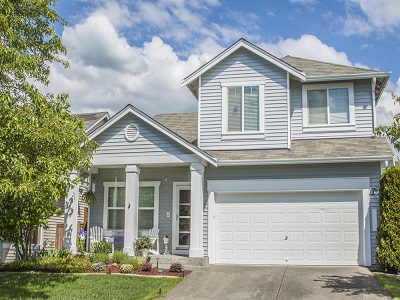
Your roof is the undiscovered hero of your home. It protects you and your family from extreme weather conditions, extreme temperatures, and pesky insects. A roof inspection is essential to ensure that it stays in good shape.
Roof inspections can check for potential problems, such as missing or damaged items, as well as whether the roof has stood the test of time. How does this differ from a regular home inspection? And how often should you inspect your roof? This article will cover everything you need to know regarding a free roof inspection.
What are the benefits of a roof inspection?
A professional roof inspector can be hired to inspect your roof for many reasons. Here’s a quick overview of the reasons you might need to have your roof inspected:
- Annual roof inspection
- Leakage from the ceiling
- Recent storms that brought debris, snow, heavy rain, and high winds
- Prepare your home for a hurricane or snowstorm
- Looking to sell your home or refinance it
- You have not had a home inspection since you purchased your home.
- The insurance company requested a roof inspection
How Often Do You Need to Schedule a Roof Inspection?
A roof inspection should be scheduled at least once per year. This task should be done in the fall or spring. You can avoid costly repairs by performing annual inspections.
If your home was purchased recently and the roof has not been inspected since it was installed, you need to schedule a roof inspection. Your roof could be in poor condition after ten years of neglect.
What is included in a Roof Inspection?
Roof inspectors will inspect every part of a roof. This includes its structural support and stability. They also look for signs of damage to ceilings and walls.
Structural Inspection
The structural inspection will assess the roof’s overall condition. Based on the layout of the roof planes, this part of the inspection will look for signs that could indicate a sagging roof.
The structural inspection does not focus on missing or damaged roofing materials but rather examines the health of the major components of the roofing system. The following signs indicate that your roof might be sagging:
- Sagging ceilings
- Rotted, splintered, or cracked rafters and trusses
- Broken or missing rafter ties
- Leaning or tilting exterior walls
- Collared ties that are missing or damaged
The inspector will inspect your roof and check the condition of your fascia, gutters, and soffit. They’ll inspect any skylights, chimneys, or vents for damage and check the grout, seals, exterior, and interior.
Material Inspection
The roof inspector will inspect the materials of the roof, which can include shingles, metal plates, and clay as well as slate shingles. They will be inspected for damage, missing materials, staining, rust, moss, or water damage. Inspection of the material also includes inspection of the flashing underneath the roofing material for signs or pests.
Interior Inspection
The interior inspection will look for any damage to the roof not visible from the outside. The inspectors will inspect the ceilings, attics, and walls of the house. These signs are common:
- Mold
- Wood rot
- Water stains
- From the ceiling, light enters the attic
- Holes in walls or ceilings
- Attic pests
Home inspections vs. Roof Inspections
The two tasks of home inspection and roof inspection are very different but can be combined. A thorough roof inspection is included in almost all home inspections. However, it will not be as detailed as a roof inspection.
How to interpret the results of the roof inspection
After the roof inspection is completed, the inspector should give you a complete report. They may take you on a tour of the house to show you the damage they have found, but they will not bring you to the roof.
Each company will likely have its own reporting system. The insurance company may also have its own report if you are doing a home inspection. The report will include information about the roof’s condition and any recommendations for repairs. It also includes any concerns that the roof might fail. Finally, it will indicate how long they expect the roof should last.
A roofing company may perform a roof inspection and provide an estimate for any roof repairs. A new roof will be required if the roof is failing in multiple areas. If you need to make ongoing repairs, a new roof can save you money.
Is it possible to inspect a roof yourself?
You can climb onto a flat roof of a single-story home to check for damage or missing materials. You will need to have the right safety equipment such as a harness and it can be dangerous. A ladder is the best safety device for a visual inspection. You should not attempt a roof inspection in Florence SC if you aren’t familiar with it or are unsure of how to do so.
Even if you have inspected the roof yourself, a professional inspection should be done. An expert roof inspection will ensure that your roof is in good condition and you can proceed with roof repairs that will last many years.
Call Florence Roofing Experts now if you need expert help in checking your roof for existing and potential problems so you can address them right away.
Like our Facebook page for more great info about roofing services.
Florence Roofing Experts
2117-B W. Palmetto Street #103
Florence, SC 29501
(843) 773-4787
http://florenceroofingpros.com
info@florenceroofingpros.com

No comments:
Post a Comment